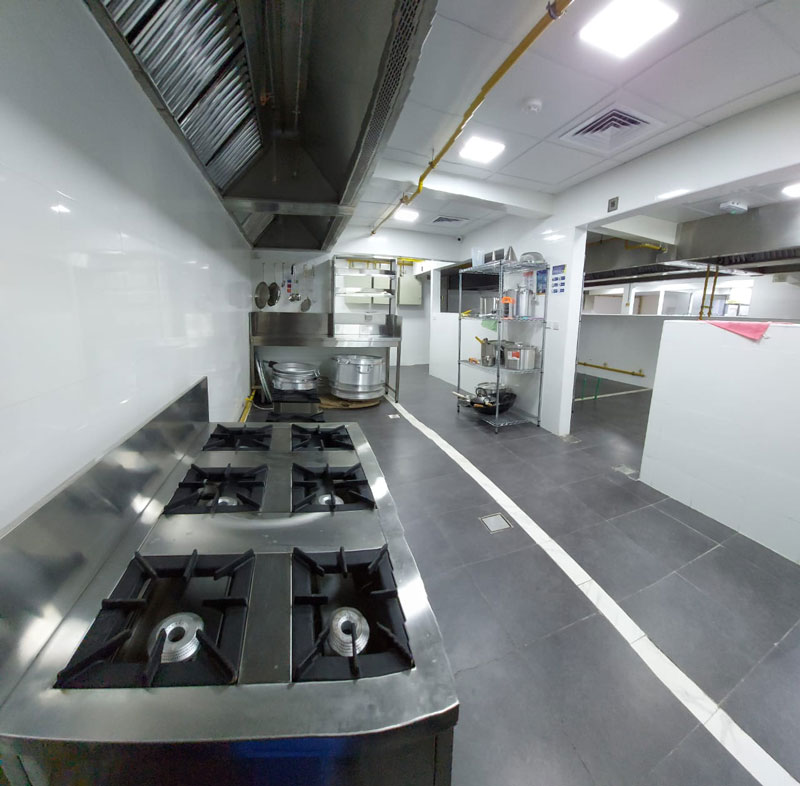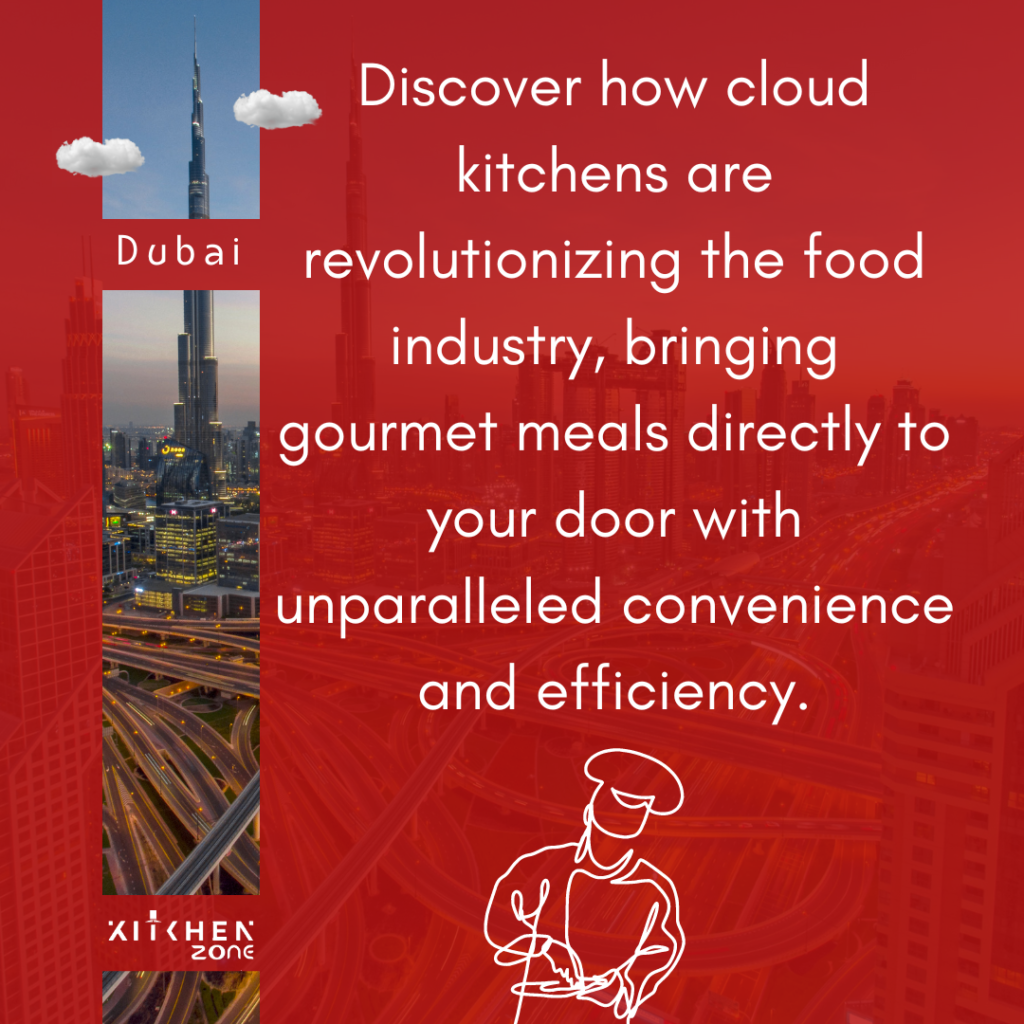Table of Contents
- Cloud Kitchen Challenges in UAE and how to overcome these challenges
- Market Saturation and the Illusion of Opportunity
- Aggregator Dependency and Commission Pressure
- Rising Customer Acquisition Costs
- Maintaining Consistency Across Virtual Brands
- Data Blindness: The Silent Killer
- Food Quality During Delivery
- Tech Overload and Fragmented Systems
- Talent Retention and Staff Turnover
- Complex Licensing and Compliance
- Balancing Costs and Profit Margins
- Poor Brand Recall and Weak Identity
- Packaging and Sustainability Pressure
- Adapting to Rapidly Changing Food Trends
- Customer Experience Beyond the Plate
- Scaling Beyond One Location
- Conclusion
- FAQ’s
Cloud Kitchen Challenges in UAE and how to overcome these challenges
Operating a cloud kitchen in the UAE may sound like a dream: fewer costs, booming delivery demand, and a thriving food tech ecosystem. But behind that dream lies a high-stakes business that demands precision, technology, and adaptability.
The UAE’s cloud kitchen landscape is evolving faster than ever — with brands like Kitchen Works, Kitch, and Sweetheart Kitchen pushing the boundaries of what a delivery-only restaurant can be. Yet, despite the potential, many cloud kitchens fail to scale beyond their first few months.
This article dives deep into the most critical and advanced cloud kitchen challenges in UAE — the ones that separate the thriving kitchens from the ones that fade out — and practical ways to overcome them.
1. Market Saturation and the Illusion of Opportunity
Every new entrepreneur sees the food delivery boom and assumes there’s space for one more brand. But the reality is, major aggregators like Talabat, Deliveroo, and Careem Now are flooded with options.
Standing out is not just about taste — it’s about positioning, data, and brand differentiation.
How to Overcome It
- Focus on a micro-niche. Instead of “healthy meals,” try “protein bowls for gym-goers” or “vegan Emirati fusion.”
- Build data-driven menus by analyzing trends on delivery apps.
- Position your brand visually and emotionally — customers remember how you make them feel, not just what you serve.
2. Aggregator Dependency and Commission Pressure
Most kitchens rely heavily on delivery aggregators, which can charge 25–35% commission. For small operators, that’s enough to wipe out profits.
Yet, ignoring aggregators isn’t an option — they control traffic and visibility.
How to Overcome It
- Develop your own direct ordering system via WhatsApp, Instagram, or a website.
- Offer exclusive discounts or loyalty points for direct orders.
- Use aggregators for exposure, but aim to convert repeat buyers to your direct channel within 2–3 orders.
Pro Tip: Create custom QR codes on packaging that direct users to your own site for reorders, In this way we can control the cloud kitchen challenges in UAE.
3. Rising Customer Acquisition Costs
In 2024 and beyond, digital marketing costs are climbing in the UAE. Competition for ad space is fierce, and ROI is shrinking.
If you depend solely on paid ads, you’ll bleed cash fast.
How to Overcome It
- Invest in organic marketing — SEO, social content, influencer collaborations, and user-generated videos.
- Use retargeting campaigns to re-engage past visitors at lower costs.
- Build an email or WhatsApp marketing list — it’s your most valuable long-term asset.
Cloud kitchens that master retention reduce marketing costs by up to 40%. By following these strategies, we can effectively address cloud kitchen challenges in UAE. These solutions help businesses overcome common cloud kitchen challenges in UAE.
4. Maintaining Consistency Across Virtual Brands
Many operators in the UAE run multiple “virtual brands” from a single kitchen — one kitchen making burgers, sushi, and wraps under different names.
While this boosts visibility, it also creates operational chaos if not handled properly.
How to Overcome It
- Use brand-specific SOPs (Standard Operating Procedures) for every cuisine.
- Train your staff to understand each brand’s unique flavor and packaging requirements.
- Use integrated kitchen management systems (like POSist or UrbanPiper) to sync all brands under one dashboard.
Consistency builds trust — and trust drives reorders.
5. Data Blindness: The Silent Killer
Most small cloud kitchens never analyze their data. They don’t track delivery times, ratings, reorder rates, or best-performing dishes. That’s like driving blindfolded in Sheikh Zayed Road traffic.
How to Overcome It
- Use data dashboards from aggregators or software tools to analyze average delivery time, cancellation rates, and customer lifetime value (CLV).
- Identify your top 20% dishes that generate 80% of profits.
- Adjust pricing dynamically based on performance and demand trends.
Data is your compass. Without it, you’ll keep guessing — and guessing is expensive.
6. Food Quality During Delivery
No matter how great your food tastes in the kitchen, it’s the delivered meal that defines your reputation. Heat loss, spills, and presentation errors can ruin your ratings.
How to Overcome It
- Invest in temperature-controlled packaging and test delivery durability before launching.
- Use short-distance delivery zones to ensure freshness.
- Conduct regular “test orders” from your own listings to see what customers experience.
Consistency is the silent marketing weapon of every successful cloud kitchen.
7. Tech Overload and Fragmented Systems
A common issue in UAE kitchens: multiple apps, systems, and devices — one for orders, one for inventory, another for staff management. This leads to errors and inefficiency.
How to Overcome It
- Use all-in-one cloud kitchen software that connects orders, stock, and accounting.
- Automate stock alerts to prevent out-of-stock situations.
- Train your team to be tech-proficient, not just kitchen-skilled.
The smoother your backend operations, the faster your kitchen scales.
8. Talent Retention and Staff Turnover
With a shortage of skilled kitchen staff in the UAE, high turnover rates are a real challenge. Constant rehiring leads to inconsistent food quality and rising costs.
How to Overcome It
- Offer performance-based bonuses and a clear growth path for staff.
- Cross-train employees to handle multiple cuisines or stations.
- Create a positive work culture — kitchens with good morale perform faster and make fewer mistakes.
A stable team equals stable performance, With proper planning and execution, it’s possible to minimize cloud kitchen challenges in UAE.
9. Complex Licensing and Compliance
The UAE has strict food safety, zoning, and trade regulations. Missing a single approval can delay operations for weeks.
How to Overcome It
- Work with a local business setup consultant familiar with F&B laws.
- Ensure compliance with Dubai Municipality, DED, and Food Safety Department.
- Keep digital copies of all documents for inspections.
Regulatory clarity saves both time and headaches.
10. Balancing Costs and Profit Margins
While cloud kitchens eliminate dining expenses, hidden costs still exist — packaging, delivery fees, software subscriptions, and marketing eat into profit margins.
How to Overcome It
- Track your Cost per Order (CPO) and aim to reduce it over time.
- Buy ingredients in bulk from wholesale suppliers in Dubai or local farms.
- Analyze menu profitability and remove low-margin dishes.
Profitability isn’t about more sales — it’s about smarter operations. Understanding and resolving cloud kitchen challenges in UAE is key to running a successful food business.
11. Poor Brand Recall and Weak Identity
Many cloud kitchens fail because customers don’t remember their brand name after ordering once. Without a strong identity, your kitchen becomes just another listing on Talabat.
How to Overcome It
- Develop a strong visual identity — logo, packaging, colors, tone of voice.
- Tell your brand story on social media and packaging.
- Build emotional connection — customers buy feelings, not just food.
Strong branding builds loyalty even in a crowded market.
12. Packaging and Sustainability Pressure
Eco-conscious consumers in the UAE increasingly prefer sustainable packaging. Using single-use plastics or low-quality containers can affect your brand’s image.
How to Overcome It
- Shift to biodegradable or recyclable packaging.
- Print a message like “This packaging is 100% eco-safe” to promote your values.
- Partner with local suppliers offering compostable materials.
Small eco-friendly efforts can boost your reputation significantly.
13. Adapting to Rapidly Changing Food Trends
Food preferences shift fast — from keto to plant-based to high-protein. If your menu doesn’t evolve, you’ll lose traction.
How to Overcome It
- Analyze trend data from aggregators and social platforms.
- Introduce limited-time offers to test new dishes.
- Keep your kitchen modular to allow quick adaptation to new cuisines.
Agility is the competitive edge in a fast-moving market.
14. Customer Experience Beyond the Plate
In cloud kitchens, you can’t rely on ambience or table service — your only touchpoints are your food, packaging, and digital communication.
How to Overcome It
- Personalize order messages (“Prepared fresh just for you, Ahmed!”).
- Add QR codes linking to your Instagram or review page.
- Respond promptly to all customer feedback — both good and bad.
A single kind reply can turn a disappointed customer into a loyal fan.
5. Scaling Beyond One Location
The UAE is an excellent testbed, but scaling requires careful planning — many brands expand too quickly without proper systems.
How to Overcome It
- Build standardized operating procedures before scaling.
- Use a centralized production kitchen to support satellite kitchens.
- Scale through franchising or licensing models once your brand is stable.
Expansion should be strategic, not emotional. By adopting modern kitchen management practices, entrepreneurs can successfully navigate cloud kitchen challenges in UAE and enhance business efficiency.
Conclusion
Running a successful cloud kitchen requires more than just great food — it demands smart operations, compliance, and innovation. Many entrepreneurs face common cloud kitchen challenges in UAE, such as managing delivery logistics, maintaining food quality, and meeting regulatory requirements. To stay competitive, operators must focus on efficient kitchen layouts, staff training, and technology-driven systems that streamline workflows. At Kitchen Works, we help businesses tackle these cloud kitchen challenges in UAE through tailored kitchen solutions, modern infrastructure, and expert guidance, ensuring smooth operations and long-term profitability for food brands across Dubai and the UAE.
The cloud kitchen challenges in UAE are real — from aggregator dependency to operational chaos — but they can be overcome with strategy, innovation, and adaptability.
The kitchens that win are those that treat food as a business, not just a passion. Through advanced technology integration and professional support, Kitchen Works helps clients minimize cloud kitchen challenges in UAE and achieve long-term success.
FAQs
1. What are the biggest cloud kitchen challenges in UAE today?
High competition, aggregator dependency, and operational inefficiencies are the top challenges.
2. How can small cloud kitchens compete with big players like Kitopi?
By focusing on niche markets, maintaining quality, and building strong brand recall.
3. What is the ideal way to reduce costs in a cloud kitchen?
Optimize your menu, control waste, and encourage direct ordering.
4. Are cloud kitchens still profitable in 2025?
Yes — with efficient management, smart marketing, and customer retention strategies.
5. How can data analytics improve cloud kitchen performance?
It helps identify best-selling items, track delivery efficiency, and enhance customer satisfaction.





